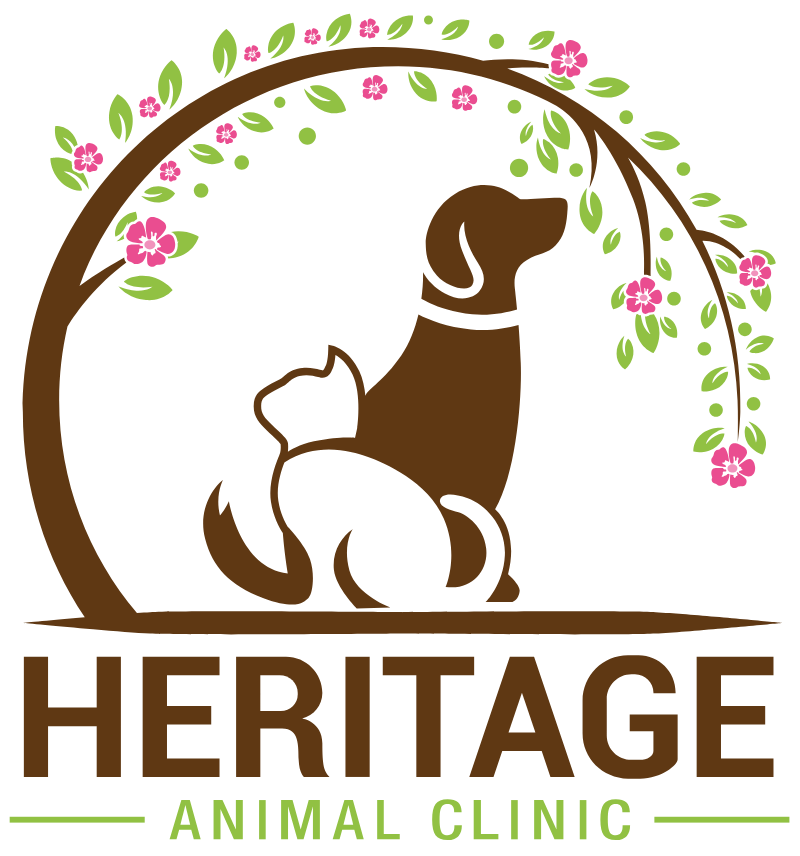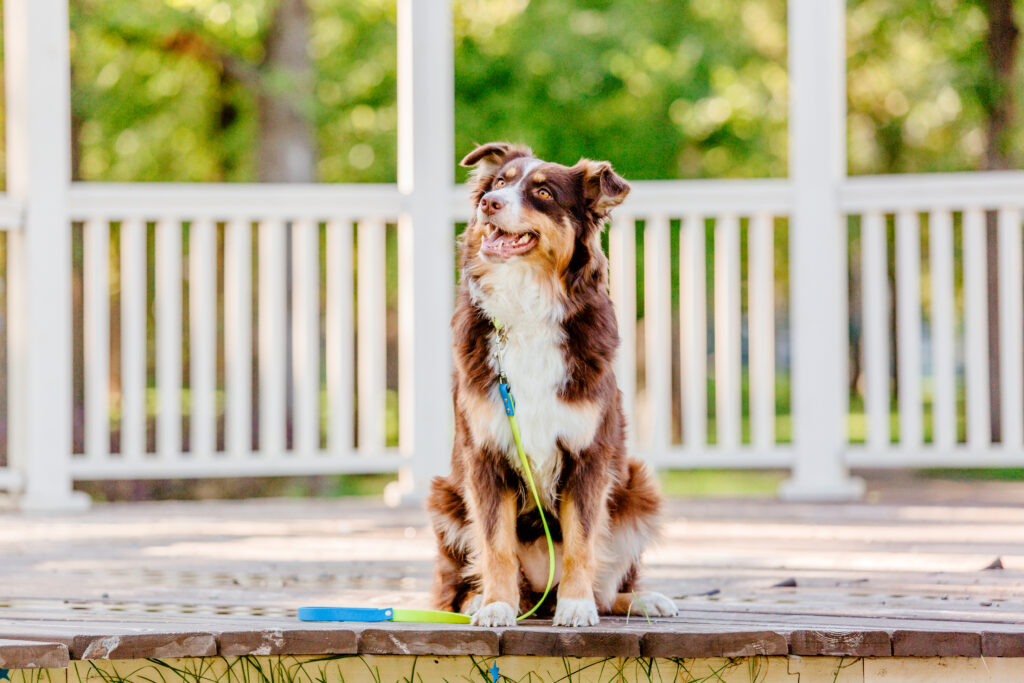Summer brings longer days, outdoor adventures, and quality time with our beloved pets. While the warm weather offers wonderful opportunities for hikes and backyard play, it also presents challenges for pet health and safety. From scorching pavement that can burn paw pads to increased parasite activity, summer requires special attention to keep our furry companions comfortable. At Heritage Animal Clinic, we want to help you navigate the season safely so you and your pets can enjoy everything summer has to offer.
Adapting Your Pet’s Exercise in Heat
Summer exercise routines require careful recalibration to balance your pet’s need for physical activity with heat safety considerations. Instead of single long sessions, consider multiple shorter activities spread throughout cooler parts of the day. Indoor alternatives like training sessions, puzzle toys, and interactive games can provide mental stimulation and light physical activity when outdoor conditions are unsafe.
Water-based activities offer excellent exercise opportunities for dogs who enjoy swimming, but require proper safety precautions. Introduce water gradually to build confidence, use properly fitted life jackets for deep water or boat activities, and maintain constant supervision around any water source. After swimming, rinse pets thoroughly to remove chlorine, salt, algae, or bacteria that could cause skin irritation or illness if ingested.
For cats, summer activity management focuses on indoor enrichment during peak heat hours. Rotate toys regularly, provide climbing structures and hiding spots, and consider puzzle feeders that make mealtime more engaging. Many cats appreciate supervised access to screened porches or secure outdoor enclosures during cooler morning or evening periods.
Every pet owner should understand how to recognize and respond appropriately to heat-related emergencies like heatstroke. If you suspect your pet is overheating, take immediate action while avoiding extreme temperature changes that could cause shock. Move your pet to a cool, shaded area immediately and offer small amounts of cool water if they’re conscious and able to drink. Contact your veterinarian immediately while implementing these cooling measures.
Environmental Safety Measures
Your home and yard environment require seasonal adjustments to eliminate or minimize summer-specific hazards. Vehicle safety represents the most critical concern. Never leave pets unattended in cars for any duration, as interior temperatures can become lethal within minutes, even on seemingly mild days. This applies to all weather conditions during summer months, not just obviously hot days.
Outdoor space management involves multiple safety considerations beyond temperature control. Secure storage for lawn chemicals, fertilizers, and pest control products. Ensure adequate shade coverage in yard areas for pets that go outdoors through natural vegetation or artificial structures like shade sails or umbrellas.
Water feature safety requires constant attention and multiple protective measures. Install physical barriers, covers, or alarm systems to prevent unsupervised access to pools, ponds, or water gardens. Even confident swimmers can become exhausted quickly in water, and not all pets have natural swimming abilities, regardless of breed characteristics or assumptions.
Summer Travel Planning with Pets
Summer travel with pets demands extensive advance planning and comprehensive safety measures. Never transport pets in truck beds, convertibles, or other vehicles where they’re exposed to direct sun, wind, and road debris. Your vehicle’s cooling system should be functioning properly. Plan frequent stops for bathroom breaks and pack portable water bowls along with familiar comfort items.
Commercial air travel during summer months is a common occurrence. Research airline policies well in advance of travel dates and consider alternative arrangements like boarding facilities during vacation periods. If your pet needs a health certificate for travel, make sure to contact a USDA-certified veterinarian as soon as possible.
For road trips, prepare comprehensive travel kits including extra water supplies, familiar food, current medications, basic first aid materials, and up-to-date health documentation. Research veterinary clinics along your planned route and keep contact information easily accessible in case emergency care becomes necessary during travel.
Summer Safety is a Pet Priority in Madison, AL
By following these essential summer safety tips, you can make sure your pets stay cool, comfortable, and protected throughout the warmer months. Being proactive about summer hazards will help you avoid emergency situations that could put your pet’s health at risk. Heritage Animal Clinic has veterinary services like vaccines, parasite prevention, and health certificates for pets in Madison and from nearby areas like Huntsville and Athens. Schedule an appointment to make sure your companion is summer-ready.



